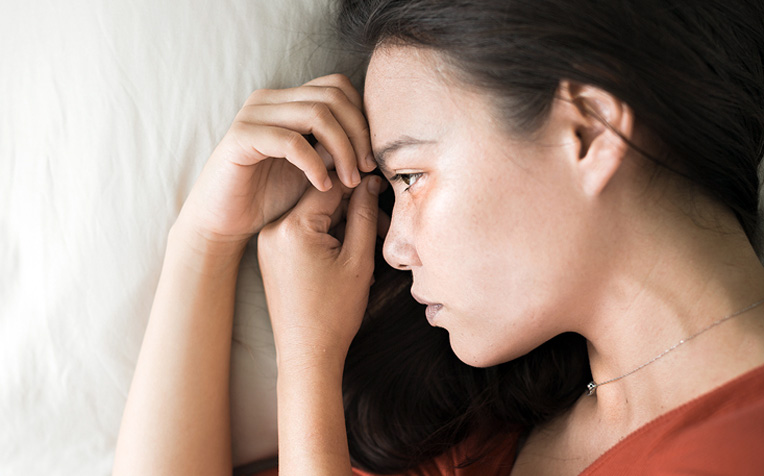
The toll of the COVID-19 situation has caused many to feel stressed, anxious and uncertain about the future. But does having such feelings indicate that one is suffering from depression? What are the signs and symptoms of depression, and what can be done to prevent it?
As many of us have never experienced an unprecedented crisis like COVID-19, It is normal to feel concerned, worried, anxious and even mildly depressed.
"Most everybody have ups and downs, but the feelings of unhappiness eventually go away after a few days. Those who may suffer from
depression remain in a depressed state for weeks to months, or for some, even years” explains the
Department of Psychiatry at
Singapore General Hospital (SGH), a member of the
SingHealth group.
A person may be diagnosed as having an episode of major depression if he or she experiences five or more of the following symptoms for two weeks or longer.
Read more:
Bipolar disorder - What it is, causes and signs to look out for
Symptoms of depression
- Depressed mood or sadness most of the time
- Lack of energy, feeling tired all the time
- Inability to enjoy things that used to bring pleasure
- Withdrawal from friends and family
- Irritability, anger or anxiety
- Inability to concentrate
- Significant weight loss or gain
- Significant change in sleep patterns
- Feelings of guilt or worthlessness
- Physical symptoms, e.g. aches and pains even though nothing is physically wrong
- Pessimism and indifference
- Thoughts of death or suicide
Persons with depression may, in some cases, entertain delusions (false unshakeable beliefs) usually involving any of the three themes, namely: guilt, ill health or poverty. These beliefs cannot be reasoned away and are not shared by others in the family or social circle.
Persons who are depressed sometimes report hearing voices scolding them, telling them they are useless and that they should go and die. Worse still, the voices may also tell them to commit suicide.
Tips to prevent depression
What you can do for yourself
- Avoid drugs, alcohol or cigarettes. Heavy use or abuse may lead to depression.
- Maintain a healthy diet.
- Exercise regularly. This increases the release of mood-enhancing endorphins.
- Seek treatment if you are suffering from physical pain. Don’t let it drag you down.
- Take time to relax. For example, listen to soothing music, meditate or practise yoga.
- Recognise that being negative alters how you perceive life situations, making you vulnerable to depression.
- Set realistic goals for yourself. Manage your expectations.
- Divide major tasks into smaller, more manageable parts.
- Stay connected with family and friends through phone or video calls, and seek help from them whenever you need it.
If you need to talk to someone, don't hesitate to call helplines like the National CARE Hotline at 1800-202-6868, open 8am to 12am daily.
Read more:
Coping with stress - Our psychologist shares 20 effective tips
What you can do for a loved one
- Don’t treat depression symptoms lightly, but offer support and encouragement.
- Don’t judge, but lend a listening ear.
- Encourage exercise to boost “feel good” hormone levels.
- Help establish a routine of activities to keep busy and improve sleep.
- Keep a close watch on their safety and of those around them.
- Encourage the person to seek professional help if feelings of sadness persist and if they appear to have suicidal and/or homicidal thoughts.
Read more: Treatments for depression - What are the options?
--
Articles on
HealthXchange.sg are meant for informational purposes only and cannot replace professional surgical, medical or health advice, examination, diagnosis or treatment. Photo courtesy of iStock.